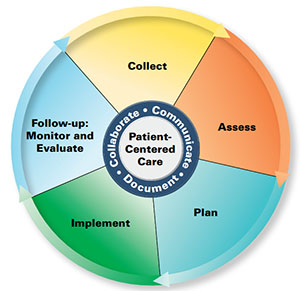Grant addresses transition of care for patients from the hospital to community setting at CUHCC and other federally-qualified health centers
For more than 50 years, Community-University Health Care Center (CUHCC) in Minneapolis has provided community-based care for patients of every age, race, color, ethnicity and language spoken.
A member of the Federal Urban Health network (FUHN), a collection of 10 federally-qualified health centers based in the Minneapolis-St. Paul region, CUHCC works in partnership with Minnesota’s Department of Human Services on Medicaid health care reform efforts with a goal of improving service access, clinical quality, patient satisfaction and engagement, while reducing overall costs.
In July 2021, the Agency for Healthcare Research and Quality (AHRQ) funded a grant to address transition of care for patients from the hospital to community setting.
“Transition of care from the hospital to the community setting is a vulnerable time for patients,” said Professor of Pharmacy Joel Farley, PhD, who serves as the Peters Endowed Chair in Pharmacy Practice Innovation and the Associate Department Head for Pharmaceutical Care and Health Systems at the College of Pharmacy. “Patients are at risk of adverse events related to medication issues and are often dealing with changes to existing medications or newly prescribed medications and they no longer have the careful supervision of the physician and nurse team that they do as a hospitalized patient.”
Along with CUHCC, the grant supports transition of care work with two other FUHN members with on-site pharmacists—Indian Health Board and Southside Community Health Services.
“The goal is to implement comprehensive medication management—CMM—as part of this transition so when patients go home and have questions, they have a pharmacist to support them,” said Farley.
As an example, a patient admitted to the hospital for poorly controlled diabetes may have medications changed during their hospital stay. Patients may have many concerns as they transition back home from directions to moving to new medications replacing old medications to affording new treatments prescribed.
Kim Tran, PharmD, serves as the director of pharmacy at CUHCC and is responsible for all aspects of its pharmacy department. For more than a decade, CUHCC pharmacists have been onsite providing pharmaceutical care to patients.
“This grant has opened up a new avenue for a more systematic workflow for our support staff and the nursing team to review emergency department and hospital inpatient patient discharges,” said Tran. “This workflow will not only consider when the patient needs to see their provider at CUHCC, but also when they will benefit from a pharmacy visit.”

Once a patient is identified as eligible for CMM services, they are referred for a visit with a pharmacist.
“The pharmacist works with the patient to identify their medication goals, review their current medications, complete the medication reconciliation process and make sure their medications make sense in the context of other medications they are using,” said Farley.
CUHCC offers onsite psychiatric care serving a patient population with depression, schizophrenia, PTSD and other mental health diagnoses.
“Patients being cared for by a psychiatrist may be on oral medications when they are admitted to the hospital and they may be transitioned to injectable, longer-acting medications while in the hospital,” said Tran. “Through CMM, we are able to work with the patients to provide face-to-face education to ensure patients get the care they need to access and receive their medications.”
The AHRQ grant is one way the University is focused on improving outcomes in high need patient populations.
“We are committed to this work so that it’s embedded in our clinic workflow with a goal that all patients discharged from the hospital or emergency department are seen by a CUHCC pharmacist at least once,” said Tran.



